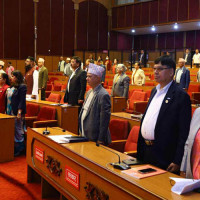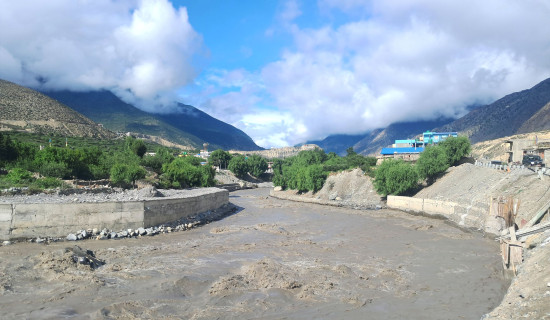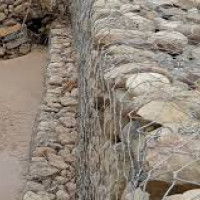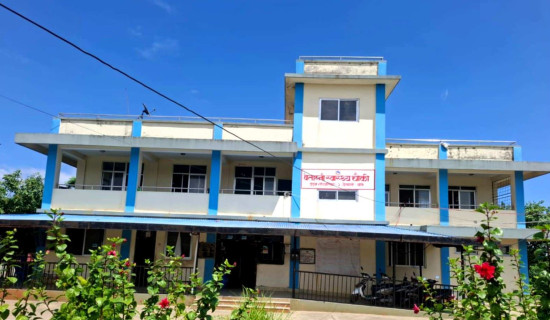- Tuesday, 1 July 2025
Almost through mid-December, Terai still feels warm
By Bijay Kumar Sah,Dhalkebar, Dec. 10: The first week of December has passed. Mountainous and hilly districts of the country have already started feeling cold weather.
But that’s not the case in the Terai. People in the districts there, including Dhanusha, are still feeling warm temperatures. The district used to experience numbing cold during the months of December, January and February, but this year people are still seen walking in summer clothes.
Environment experts claim the imbalance in the weather pattern has an impact on climate change. Not sufficient rainfall during the rainy season, extreme weather events, untimely rainfall, and extreme cold and hot are also the impacts of climate change.
Suresh Sharma, environment protection campaigner and secretary general at Madhes Forest Directorate, said that climate change is the result of rapid industrialisation. Human activities are becoming the main challenge for environmental imbalance, he added.
He informed that the water resources are drying up due to global warming, snow in the Himalayas is melting and the danger of desertification on the earth is increasing and this has been posing a risk to the living beings on earth. The temperature in the Terai is also increasing every year with global warming.
Narrating the past, he said until a few years ago, it used to be bitterly cold from the middle of November. People had to wear warm clothes to avoid the cold. However, now it is normal, and the cold is not experienced much.
Dev Narayan Mandal, president of Mithila Wildlife Trust Dhanusha, who has been working in the field of environment and bird protection, said that the effects of climate change are appearing in all areas.
Due to the lack of attention to environmental destruction, the amount of greenhouse gases in the atmosphere has increased, the ramifications of which have started to be seen already.
“Forgetting the future of our children, we are working carelessly thinking only for today. This does not mean that infrastructure development should be stopped in the name of environmental protection. However, the environment should not be destroyed in the name of development,” he said. Nepal is also not immune to the effects of climate change. Environmental pollution is increasing rapidly, he added.
“Due to the overexploitation of natural resources, the existence of not only humans and animals but also the habitat of every creature on the earth is in danger,” Mandal said.
















